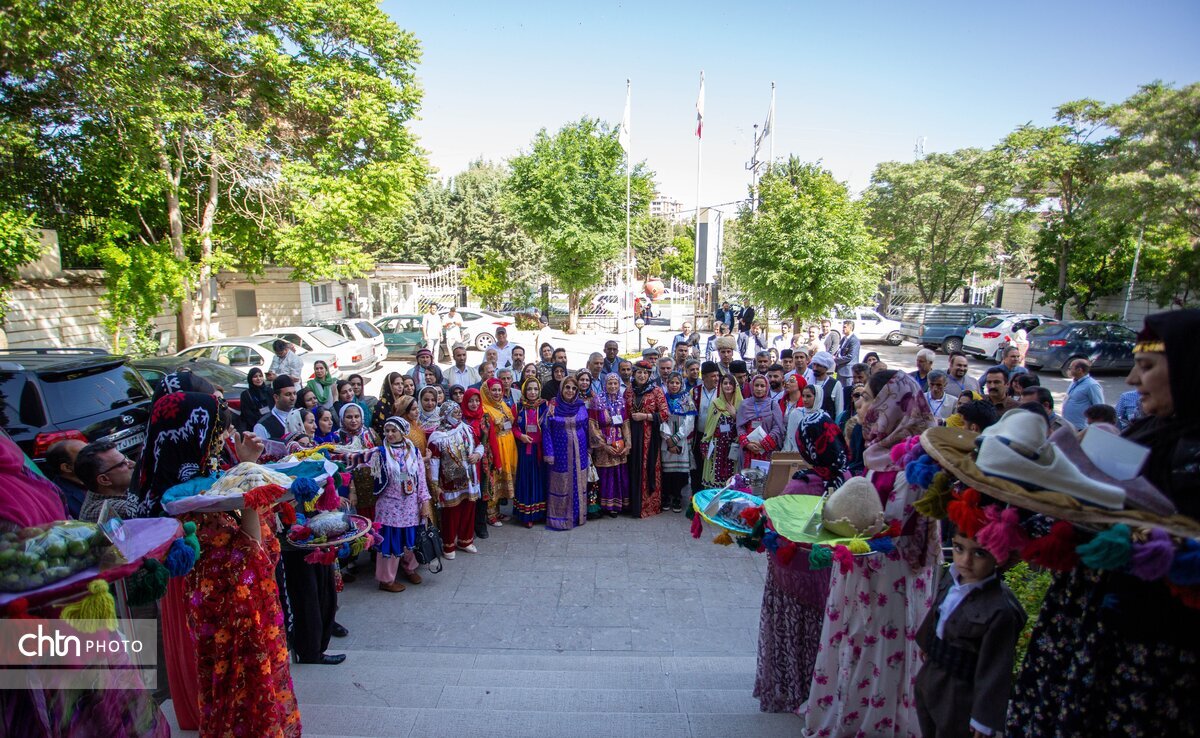Kermanshah welcomes ecotourism fellows from across Iran

TEHRAN - A seminar on rural lodges and ecotourism in Iran’s Kermanshah, on Sunday, saw the participation of over 250 ecotourism-related groups, sharing experiences, each representing a region of the country.
The seminar took place at the Kermanshah Chamber of Commerce, where attendees were greeted with stunning displays of Iranian ethnic costumes, IRNA reported.
The main objective of the seminar, as stated by the head of the Association of Eco-lodges Professional Associations, was to educate and empower the position of ecotourism lodges at an international level.
Addressing the event, Yavar Abiri referred to the beauty of rich local cultures nationwide, saying, “Ecotourism in Iran has the potential to go global.”
Conversations between the participants were rich with pride in their culture, dialects, language, and traditional attire, showcasing the beauty of their homeland, the report added.
“We've come to see and learn more,” said a man, representing a Golpayegan's eco-lodge.
“As an Iranian, I'm proud to support indigenous authenticity,” Mrs. Khojestehpour from Naz Khatoon eco-lodge in Mashhad noted. “And I'm eager to share rich culture and traditions of my homeland with others and demonstrate how we've preserved our authenticity even in this modern age.”
Moreover, the chief of “Angoran” eco-resort in Zanjan highlighted the development of accommodations and the acquisition of knowledge as their goals in the seminar.
He described Angoran village as a beautiful area nestled between two salty and sweet rivers, adorned with pine forests, and located near Takht-e Soleiman.
Home to diverse natural landscapes and cultural heritage gems, Iran has already taken steps to promote ecotourism that focuses on minimizing the negative impact of conventional tourism on the environment in a sustainable approach.
Eco-lodges play a significant role in the tourism industry by offering travelers a sustainable and immersive experience in nature. As concerns about environmental conservation and responsible travel continue to grow, eco-lodges have become increasingly popular among eco-conscious tourists.
One key aspect of eco-lodges is their ability to attract travelers who are seeking authentic and environmentally friendly experiences. These travelers are often drawn to the resorts because of their commitment to sustainability, which aligns with their values and desire to minimize their ecological footprint while traveling.
Eco-lodges also cater to a niche market of travelers who are looking for unique and off-the-beaten-path accommodations. Unlike traditional hotels, eco-resorts are often situated in remote or pristine natural locations, offering guests a chance to disconnect from the hustle and bustle of urban life and reconnect with nature.
Furthermore, eco-lodges contribute to the diversification of tourist offerings within destinations. By promoting sustainable tourism practices and supporting local communities, eco-resorts help to preserve natural and cultural heritage while generating economic opportunities for residents.
In recent years, there has been a growing recognition of the economic potential of ecotourism and sustainable travel. Governments, tourism boards, and conservation organizations are increasingly supporting the development of eco-lodges as a means to promote sustainable tourism and preserve natural resources.
Overall, eco-lodges occupy a unique position in the tourism industry, offering travelers an alternative to conventional accommodations while promoting environmental conservation and supporting local communities. As the demand for sustainable travel continues to rise, eco-lodges are likely to play an increasingly important role in shaping the future of tourism.
XF/AM
